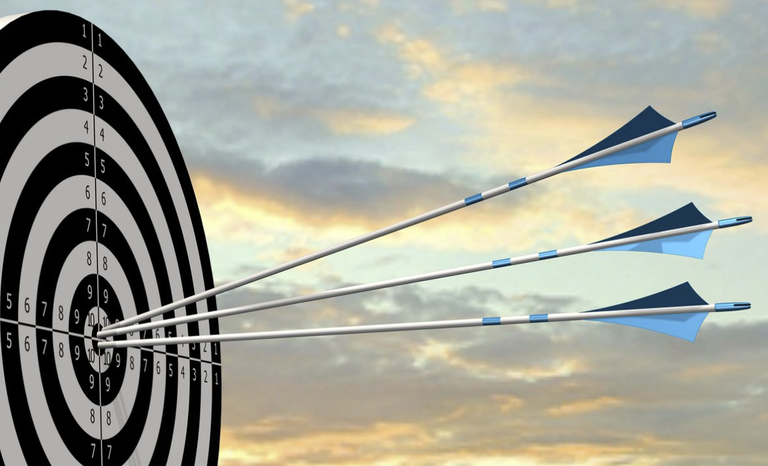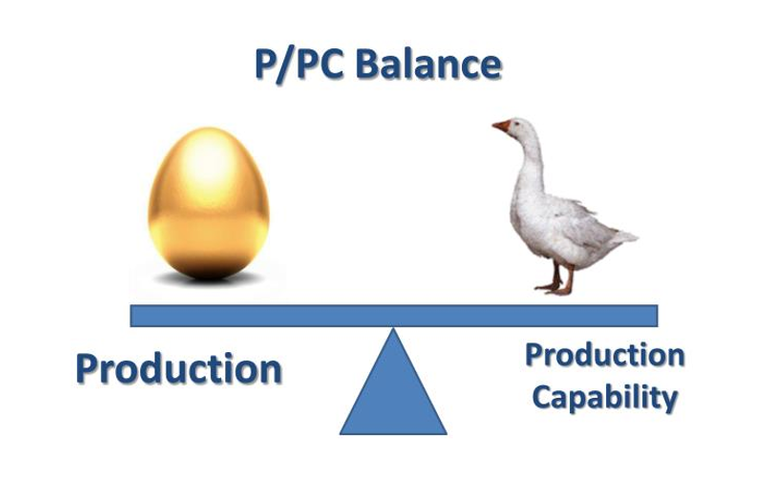
History of 7 Habits
Steven Covey's book on The 7 Habits of Highly Effective People was originally published in 1989 and has sold more than 25 million copies worldwide. It is a self-help book aimed at business people and leaders but can equally be applied to anyone who wants to be effective at reaching their full potential, building strong relationships or attaining their goals.
I believe the 7 habits are timeless and universal. That is, they can help anyone who applies them regardless of the situation. If your passion is environmental issues, you can make yourself more effective by applying the 7 habits just as an athlete, mother or teacher could.
I am going to relate the key ideas from Covey's work with some modern-day examples that also illustrate its timeless application.
Character vs. Personality
Many self-help books concentrate on advancing our personality but Covey concentrates on working on deep-rooted principles that make up our underlying character. From a personality perspective, we may be happy, energetic friendly but Covey argues that to become more effective we need to address our deep character traits.
We are all scripted through our experiences in life, to see particular things in a particular way. However, someone else from a different place in the world may see the same thing but from a very different perspective based on their experiences. I travelled across Africa widely and went to some remote locations. One of the places on the edge of the Sahara was incredibly dry and the locals hardly ever saw any rain. I was fortunate to be involved in a trip with some of the local children from one of these African villages, visiting a big Northern European city. Whilst in Europe, there was one day that it rained very hard and the children couldn't believe it - they danced in the street in joy as they had never seen such rain before. I looked around and the faces of the local Europeans who were dull, subdued and even pained. For them, the rain was horrible, it was ruining a summer's day and you could see it on their faces. The same rain, different past experiences resulting in a different perception. Sometimes we just need to see things from another point of view to see it completely differently. Still today, I smile every time I walk in the rain, remembering those children.
They say, "Never judge a book by its cover." However, in reality, that is what we do every day when we meet someone new. We are quick to judge. However, what we see of someone is just the tip of the iceberg.

What is visible when we meet someone is their physical appearance, their personality, their behaviour, the things that are visible. They will tell us what they do in life but do we really know that that is what they do?
As we get to know someone, we start to learn more of the iceberg that is below the water. The things that are not immediately visible. We start to experience their character traits, we learn about their skills and the background of their life. We start to learn what they really do.
However, there is a deeper very personal layer that is deeply hidden. Their beliefs and guiding principles. For most people we will never know their deepest inner thoughts and what really makes them tick. Sometimes even wives and husbands never share things that deep. That is, why they do the things that they do. Their principles. Covey tries to address these deep principles through the 7 Habits to make us more effective in what we do.
Effectiveness
Before we delve into understanding the 7 habits, it is first important to understand what we mean by effective.
producing a decided, decisive, or desired effect
Merriam-Webster
The 7 Habits all help contribute towards becoming more effective and they work together in a logical way to achieve effectiveness. Covey introduces the fundamental principle behind effectiveness as maintaining the P/PC balance.
What is the P/PC balance?
- Production (P) - represents how much we can produce or output
- Production Capability (PC) - is the ability or capacity to produce
To illustrate this balance, Covey introduces the fable of the Goose and the Golden Egg.
I this story a poor farmer has a goose that lays a golden egg. At first, the farmer doesn't believe it is real but when another one is laid by the goose the next day the farmer authenticates the gold. From then on, every day he waits for the goose to lay him another golden egg and he becomes richer and richer.
After a while, greed kicks in and he becomes impatient waiting for the goose to lay another egg and he decides he will kill the goose so that he can get all the eggs from inside the goose at once. However, there are none inside because it was the goose producing the golden eggs. The farmer has now destroyed the production capability and no more eggs will be produced.

The P/PC balance can be applied to any process or relationship. For example, a factory can produce output but if we push the factory too hard without proper maintenance, we will eventually kill production. We need to find a good balance between investing in factory production and the production output. This is the P/PC balance that provides overall effectiveness.
The Emotional Bank Account
To further explain the P/PC balance in personal relationships, Covey introduces the concept of an emotional bank account. For a relationship, for example with our wife, husband, parent, child, colleague, boss etc., we also need to find the P/PC balance.
When we do kind and loving things, we make deposits in the emotional bank account. This is building PC. When we want something we are making a withdrawal which is the output P of the relationship. If we always take and never give, eventually the relationship will fail. So we need to invest in the relationship.
When we do something wrong and hurtful. This is the same as taking a large withdrawal. The idea is that if we have built up enough positive credit by previous deposits into the emotional bank account then we are more like to be able to mend the relationship. We shouldn't take any of the relationships we have for granted but we all need to work on them by making deposits in the emotional bank account.
6 Major Deposits
Covey tells us there are 6 major deposits that we can make in the emotional bank account to increase our P/PC balance in any relationship.
Understanding the individual

If you want to build a relationship, try to understand the needs and desires of the person. What makes them tick? If it is all about you then that is not a recipe to grow the relationship. You need to really listen and understand their viewpoints in life.
Attending to the little things

Sometimes it’s the little things that actually mean so much to someone in a relationship. This may be not doing the thing that you know annoys your partner or buying them a present like chocolate or flowers.
Keeping commitments

If you want to have a stronger relationship with someone, then do what you said you will do. This will help build your relationship and rapport.
Clarifying expectations

Showing personal integrity

Apologising sincerely when you make a withdrawal

The Journey to Effectiveness
Covey goes on to discuss three different maturity levels of effectiveness that we can progress through as we develop as people. Some people perhaps never develop and stay at the first level, most progress to the second with a few progressing to the third. Of course, the levels are not black and white - all of us drop back to the lower levels sometimes.
Dependent
When we are born and grow up as children we are dependent. We rely on others to validate that we are doing the right things and doing things right. It is easy to see how a child is dependent on a parent or a teacher. They are also dependent on other factors such as grades, winning at sport and having lots of friends. Some adults remain at this level, as to feel they are doing something right, they rely on others to validate their actions. For example, consider someone who is always worried about how people will think they look. Or worried about how people might laugh at what they say. How many 'likes' do we get on Facebook or Twitter?
The dependency we are talking about is the dependency to validate our actions. We are limited by this as we are always worried about what someone else will think about what we say and what we do. People at this level will only do things if they feel it will be liked by others and are therefore more reactive in nature.
Independent
As we mature we start gaining more independence. We start to realise that actually it doesn't matter what other people think but what matters is that we reach the goals and standards that we set for ourselves. We no longer judge ourselves by the reaction of others. This drives a level of creativity where we can express ourselves, wear what we want and say what we want without any worry about how many 'likes' we get.
Releasing the shackles and becoming independent allows us to become more effective as we can produce the desired result rather than limit ourselves to what we feel other people would accept as a result.
Interdependence
As we develop further, we realise that our own opinion of what is right is not enough and that to reach maximum effectiveness we need to work with others. We realise that everyone has different experiences and that they see life through different lenses. These different perspectives of the same things bring us strength. We start to relish diversity.
We can achieve more by working together rather than alone and therefore the spirit of interdependence is through collaboration. This is, in fact, the basis for society, where when we were caveman we realised if the men left their possessions, wives and children with the tribe whilst they went out hunting, they would be looked after and would be there when we got back. Working together we can achieve so much more.
When someone reaches the interdependence maturity level they become selfless and realise it is not all about them. They don't need others to validate what they are doing like someone who is dependent and realise the collective communal view is better than their own personal blinkered view of the world. Interdependent people make good leaders as they bring others on their journey, make the most of their skills and they will also build strong personal, business or family relationships.
The 7 Habits
The 7 Habits that Covey describes in his book help us on our journey of becoming effective. They all strengthen the P/PC balance in different ways. The first 3 habits help us move from being dependent to independent. The next 3 then help us on our journey to interdependence. The final balance is one of renewal that stokes the PC side of the P/PC balance.
So what are the habits? I will start covering the 7 habits in the next post.
Please let me know if you found this a useful introduction.
Hello @awah
Post upvoted and resteemed already.
Thank you for posting within our hive. I upvoted your content already. Please spare few minutes and read how project.hope is organized and learn about our economy.
That would help you understand more our goals and how are we trying to achieve them. Hopefully you will join our community and become strong part of it :)
Do you use telegram or discord? If you do then join our server and give me a shout. I would gladly share with you goals of our community and introduce to others from our team.
Our discord sever: https://discord.gg/xGADdt
Yours,
@project.hope team,
Hi @Project.HOPE
Thanks for your response. I have had some direction from @crypto.piotr and have also joined your Discord server. Happy to join this community.
cool :)
Really a great book to read! It is necessary that we be effective in all we do rather than being just busy and unproductive.
I look forward to reading on the 7 habits.
Thanks for your response @tomlee
It is a timeless book that everyone can benefit from. I will be looking at the 7 Habits in future posts and how we can apply them in today's world.
It's really interesting if we read it to the end. Because this is too long.
Hi @teach-me
Thanks for the feedback. This was meant to be an introduction to what Covey discusses as effectiveness but when I I started writing, it did become too long. I will split each habit into separate posts going forwards to drip feeb bite sized reads.
Hello @awah
It's a very complete book from what I could read in the summary you brought.
Since it encompasses many human and social aspects.
We never really got to know that hidden Iceber, only part of it. Even more so if we consider that we are changeable. At least it's my perception.
Effectiveness is certainly something necessary in everything we do, regardless of our approach, that generates peace of mind and pleasure because you feel that somehow things are made concrete.
Hi @josevas217
We need to consider the parts of the iceberg that are hidden. For example, we might find a colleague at work who is very grumpy and short tempered. That is the tip of the iceberg. What we don't see are things like, their partner is very ill, they don't have enough money, their kids just kicked out of school. People bring emotional baggage with them which is hidden and we just write them off because they are grumpy.
Sometimes we need to cut each other some slack.
This was a long read but it was worth it and the story of the farmer says it all.
Of course, it was a beautiful introduction.
Thanks @mojubare for your response. I hope that you enjoy my future posts too when I delve into each of the habits.
Congratulations @awah! You have completed the following achievement on the Steem blockchain and have been rewarded with new badge(s) :
You can view your badges on your Steem Board and compare to others on the Steem Ranking
If you no longer want to receive notifications, reply to this comment with the word
STOPDo not miss the last post from @steemitboard:
Vote for @Steemitboard as a witness to get one more award and increased upvotes!
Congratulations @awah!
Your post was mentioned in the Steem Hit Parade for newcomers in the following category:
Hi @awah
Finally I found some time to read your publication :) seriously great choice of topic. Quite a long read but I surely found it worth my time. Thx :)
To tell you the truth, I wans't even aware that character and personality are not the same things. I always considered both to have pretty much same meaning.
Oh yes! I hate that so much. People like to judge and usually we're make all those judgements without having much data.
Have a pleasant monday,
Yours, Piotr
Hi @crypto.piotr
Thanks for your response and I am happy to hear that you found time to respond to my rather long post.
It is true that most of us consider personality and character to be the same and I did too until I read the 7 Habits book. However, I now see that personality is something much more superficial and character is much deeper rooted.
Thanks
I love to see how responsive you are @awah :)
Thanks @creativeblue - It was long for an introduction! I hope you also enjoy the follow-up posts.